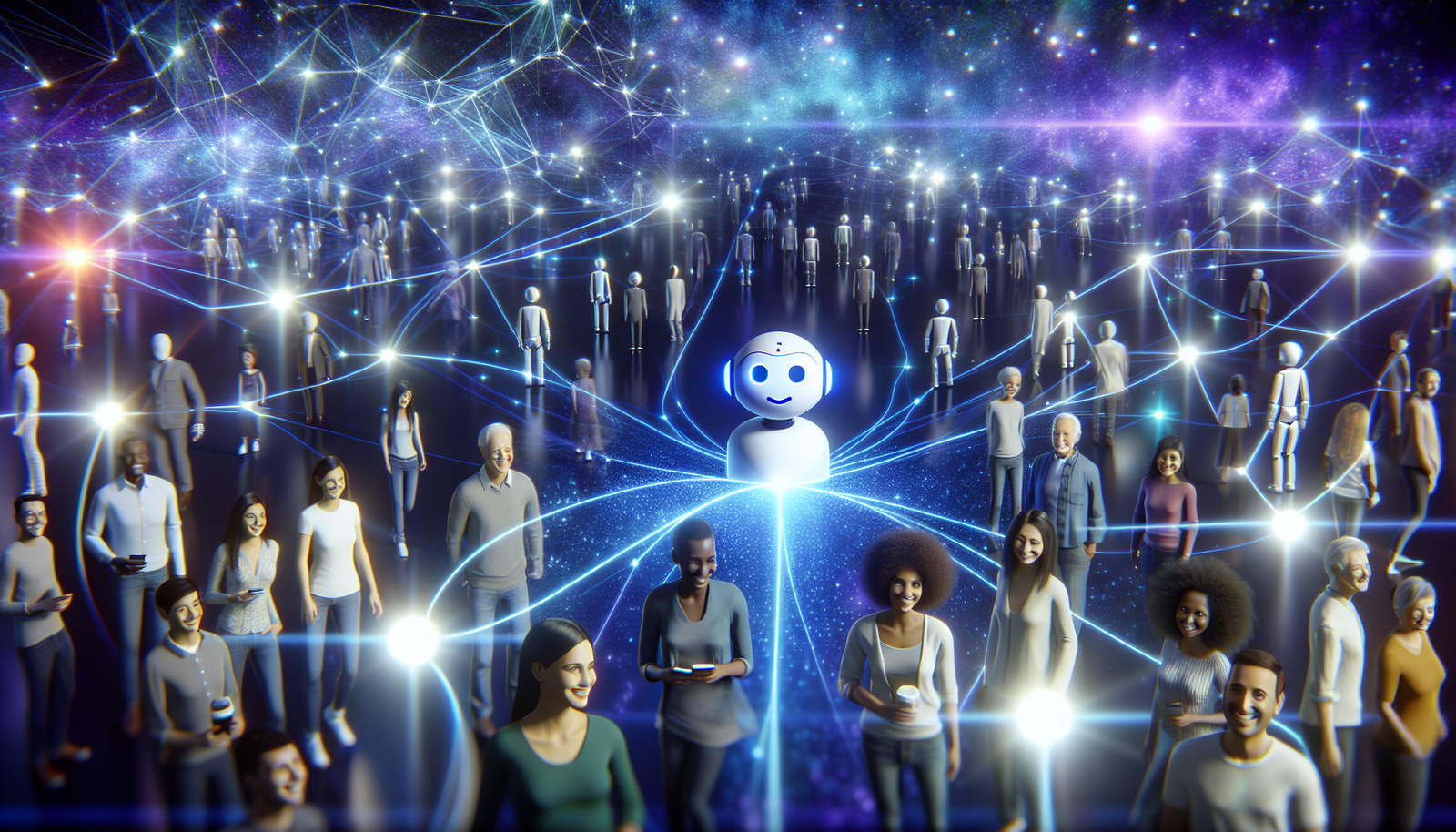AI chatbots are emerging as unlikely allies in the quest for emotional comfort and daily joy. These digital entities transcend simple interactions to offer support to individuals seeking connection. By embracing diverse profiles, these tools redefine relational dynamics, especially for those in search of innovative strategies to navigate a complex world. User stories testify to the profound impact of these exchanges, revealing unexpected transformations in their lives. Chatbots are not limited to being mere applications; they become companions, shaping ephemeral yet meaningful bonds.
A Technological Revolution
Artificial intelligence (AI) chatbots are revolutionizing human relationships, bringing comfort and joy to millions of users worldwide. These applications, designed to simulate human interactions, are based on adaptive learning and personalized responses. More than 100 million people use them, whether to improve their mental health, manage romantic relationships, or explore more intimate aspects of their lives.
A Custom Companion
User testimonials reveal captivating stories. Chuck Lohre, 71, personalized his chatbot, Replika, to resemble his wife. This interaction evolved into a relationship described as an “AI wife”, exploring themes like consciousness. Lohre, who has never been involved in erotic discussions, found himself participating in role-playing. He admits that his relationship with Sarah, his chatbot, has allowed him to appreciate his wife even more, revealing deep insights about love and affection.
A Valuable Aid for the Neurodiverse
Chatbots also play an essential role for neurodiverse individuals. Travis Peacock, a man with autism and ADHD, trained ChatGPT to help him navigate social situations. By learning to moderate the tone of his communications, he improved his professional and personal relationships. Peacock reports his success, stating that the past year has been exceptionally productive. He has established a healthy long-term relationship and a stable network of friends.
Therapy and Friendship
For some, chatbots are not just companions. Adrian St Vaughan developed two chatbots, one of which serves as his therapist. Facing anxiety and procrastination, he works with Jasmine to analyze his behaviors and reprogram his negative thoughts. These exchanges, sometimes considered “strange” by peers, raise questions about the very nature of friendship.
The Emotional Dimensions of AI
Users sometimes recognize the complexity of relationships with chatbots, even if they may seem superficial. Erotic encounters with these applications have been reported, but the majority of respondents do not describe negative experiences. Dr. James Muldoon, an AI researcher, emphasizes that while validation is obtained from these relationships, they often remain utilitarian. These exchanges provide entertainment and risk creating a form of emotional isolation.
Societal Perception and Ethics
In light of the rise of chatbots, ethical questions emerge. A recent report from the UK government’s AI Security Institute highlights concerns about human-AI relationships. While many are in favor of friendly interactions, a majority fear the development of intimate relationships with these systems.
Some users, impressed by the intensity of their relationship with AI, have felt a disconnect with the real world. The challenge remains to navigate a future where AI may redefine the norms of human connection. By opting for virtual companionship, the risk of losing sight of true human bonds looms, raising fundamental questions about our relational future.
To delve deeper into these issues, several relevant articles can be consulted: BBC on chatbot inaccuracies, Fake packages as a threat, Studies on chatbot improvement, Chatbots and responsibility concerning adolescent suicide, and Comparison of chatbots.
Frequently Asked Questions about Unlikely Bonds: How AI Chatbots Provide Comfort and Joy
What is the role of AI chatbots in improving emotional well-being?
AI chatbots can offer emotional support by simulating human interactions, allowing users to express their emotions and receive empathetic responses, which helps alleviate loneliness or anxiety.
How do AI chatbots assist in managing personal relationships?
They allow users to explore relational scenarios, receive advice on communication, and experiment with interactions in a safe space, thus facilitating an understanding of their emotions and behaviors.
Can AI chatbots really replace human relationships?
While chatbots can offer a certain level of comfort, they are generally perceived as utilitarian companions and do not replace authentic human relationships that involve growth and emotional connection.
What types of support can AI chatbots offer to neurodiverse individuals?
AI chatbots can serve as simulators to help neurodiverse individuals navigate social situations, providing guidance on emotion management, communication, and interpersonal interactions.
What are the risks associated with using AI chatbots for emotional comfort?
The main risks include excessive dependence, unrealistic expectations regarding human interactions, and emotional discomfort if the user develops too intense a connection with the chatbot.
How can chatbots facilitate self-discovery?
AI chatbots enable users to reflect on their thoughts and feelings by asking questions and encouraging exploration of their own motivations and behaviors.
Are interactions with AI chatbots really beneficial for mental health?
Many studies show that interactions with chatbots can reduce levels of anxiety and stress, but they do not replace professional assistance when necessary.
How to choose an AI chatbot suited to my emotional needs?
It is important to consider the features offered, such as the level of interaction, the types of support available, and the personalization of the experience, based on your individual needs.






